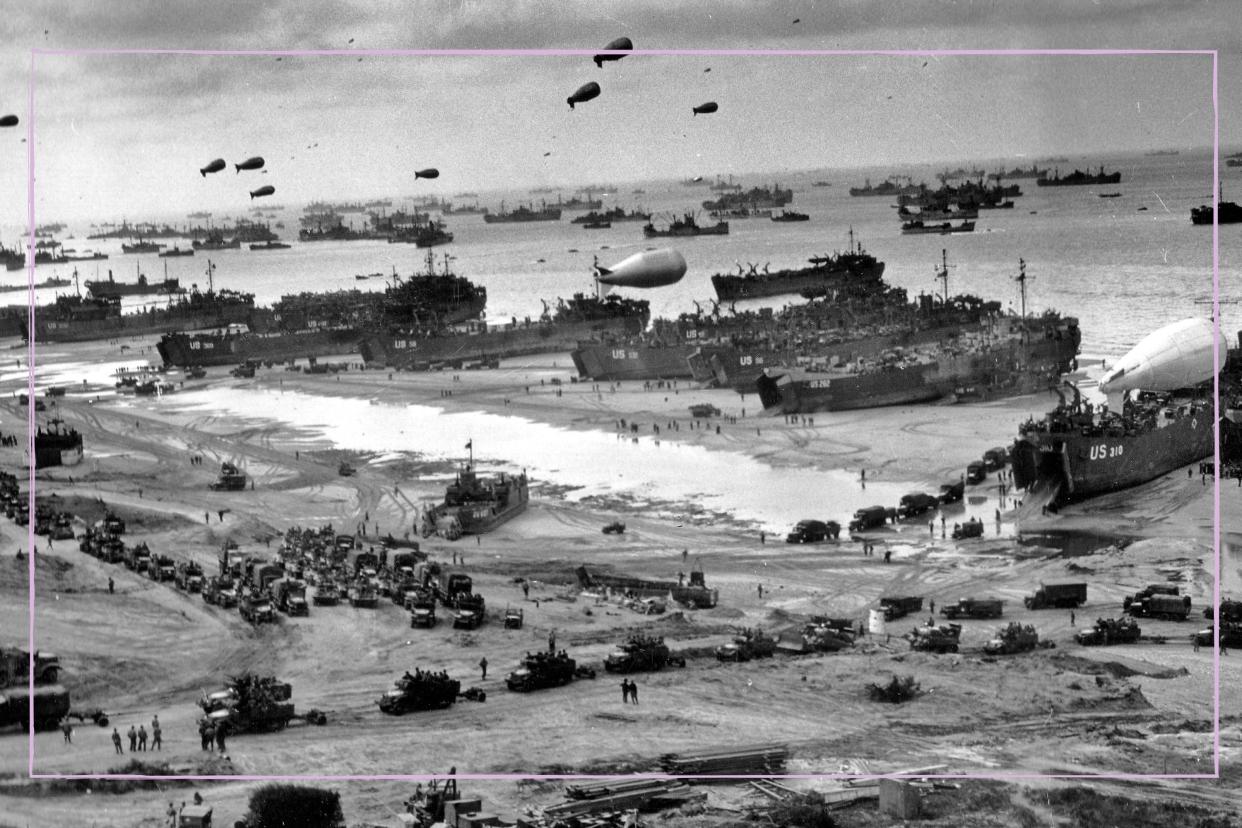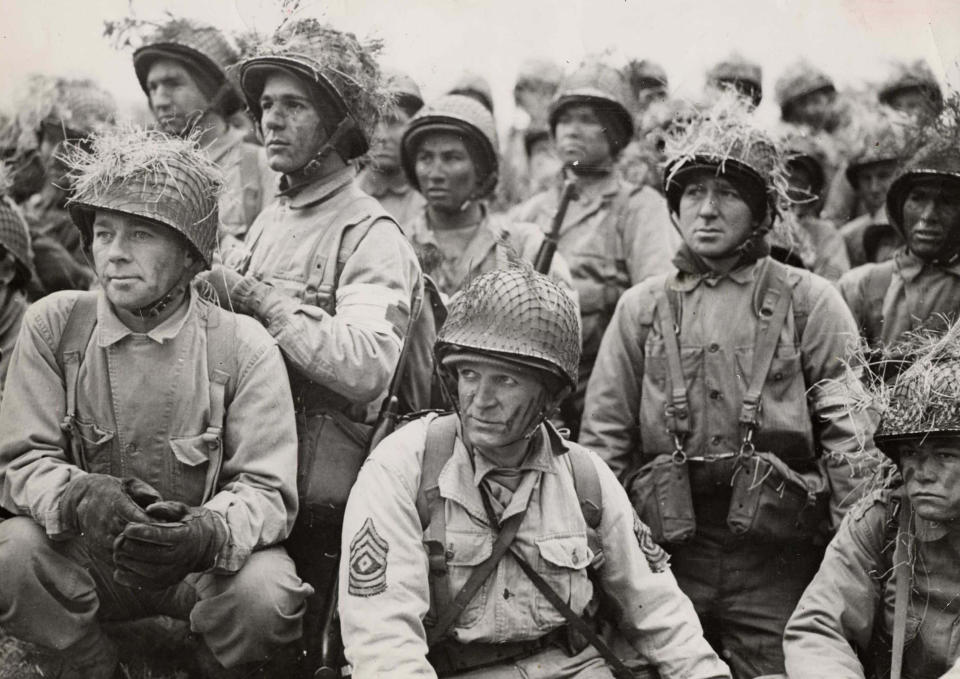What does D-Day mean? We answer the questions your kids might ask and reveal 10 important facts to share

What does D-Day mean? We answer questions your kids might ask about the historic event, and reveal some important facts to look at with them.
Wondering how to talk to talk to your child about war amid ongoing conflict sadly continuing around the world, is something parents will want to be prepared for. Children and teens might hear stories about current wars in the playground, or see trending stories on social media - the recent 'All Eyes on Rafah' online campaign would've been seen by many who have access to a phone.
Inquisitive kids will also want to know about historic events, like why some people began wearing a white poppy instead of the traditional red on Armistice Day in recent years. When previous wars are commemorated, this offers an opportunity to discuss historical events with children, and a chance to learn from events gone by. With June 6 marking the 80th anniversary of the D-Day landings, we share what to tell kids asking what D-Day means and how to address other questions they might have, and we've collated some important facts to tell them about the event.
What does D-Day mean?
There are actually disagreements relating to the exact meaning of the term 'D-Day.' Some wrongly believe the 'D' to stand for designated day, decision day, doomsday, or death day. However, the Royal British Legion advise the term D-Day is used by Armed Forces to refer to the start of any operation. Therefore, the 'D' simply means 'Day', and D-Day would've been short for 'Day-Day' when plans for the operation were underway.
There would've been a number of D-Days prior to the one we know and commemorate, but the term became so iconic, it came to be used synonymously when referring to the historic Normandy landings. However, Time presents arguments from history suggesting the 'D' actually stands for something else.
In Paul Dickson’s book War Slang: American Fighting Words and Phrases Since the Civil War, he quotes Robert Hendrickson’s Encyclopedia of Word and Phrase Origins, presenting a different explanation for the meaning. Dickson argues the French maintain the 'D' means 'disembarkation.' He adds that someone writing to General Eisenhower in 1964 asking for an explanation, received a reply from his executive assistant, Brigadier General Robert Schultz, with yet another meaning.
Shultz responded with "General Eisenhower asked me to respond to your letter. Be advised that any amphibious operation has a 'departed date'; therefore the shortened term 'D-Day' is used." However, despite the varying explanations for the meaning for the term, the general consensus in modern times is that it simply stands for 'Day-Day,' in line with Armed Forces code.
How to explain D-Day
To explain D-Day to a young person, you can tell them that in 1940, Germany had taken over Western Europe and captured France, Belgium and the Netherlands. To try and free the captured countries, Britain, America and Canada came together in the largest military operation ever attempted on land, sea or air - the operation became known as D-Day and took place on June 6, 1944.
Originally codenamed Operation Neptune, gathered troops landed on five Normandy beaches, with aeroplanes and ships helping their operation. They took control of all beaches they targeted, after successfully misleading Germany into believing they would invade a different part of the French coast. Germans were unprepared for any arrivals to Normandy beaches.

D-Day impacted the course of the war hugely. Until landing in Normandy, allied troops had no way to access Western Europe. Successfully taking control of the French beaches offered a way to send troops to fight the Germans and free countries taken over by the Nazis.
Nazis were also distracted by fighting the Soviet Union - this is what we know as Russia today, and the countries surrounding it. After being taken by surprise by D-Day, the Nazis had to split their armies between combat with the Soviet Union, and sending troops to the Western Front in an attempt to keep control of the countries being freed by D-Day landings. It was the strain put on German forces that sped up the end of the war.
Facts about D-Day - we find 10 to share
Although codenamed Operation Neptune, D-Day was the start of the bigger Operation Overlord.
Around 156,000 American, British and Canadian troops landed on the beaches in Normandy.
Troops were supported by over 6,000 ships and more than 2,000 aircraft.
Thousands of paratroopers were sent to land on the beaches first, but only 15% landed in the right place.
The five beaches where troops landed were codenamed Sword, Juno, Gold, Omaha, and Utah.
In the run-up to D-Day, the BBC ran a fake competition asking the public to send them French beach holiday photographs and postcards. These were actually sent to the War Office so they could plan where to land on D-Day.
Adolf Hitler was asleep when D-Day got underway.
200,000 American, British and Canadian troops and over 300,000 German soldiers were reported dead, wounded, and missing.
Over 12,000 French civilians lost their lives.
D-Day remains the largest naval, air and land operation in history.
How many D-Day veterans are still alive?
Although precise numbers aren't known, Blesma reports that as of 2023 a few thousand D-Day veterans still alive today around the world. There are estimated to be less than 100 surviving British D-Day veterans alive in 2024, with 23 of those travelling to Normandy this year for D-Day commemorations.
D-Day veteran Jim Miller, was recently presented with a 100th birthday card, given in person by King Charles. Mr Miller was invited to Buckingham Palace, to speak to the King about his experience in Normandy - he was just 20 years old when he landed on Juno Beach on 9 June, having volunteered for the Army at the age of 18 after failing a hearing test for the Royal Air Force.
According to the BBC, Mr Miller said "I am humbled to reach such a great number, especially when I think of those who fell on the Normandy beaches all those years ago. I am proud that I can still share my memories with the generations that come after me."
For more interesting snippets of information, take a look at these facts for kids, and things you probably didn't know about Kate Middleton. For more on the Royals, check out our amazing facts about the Queen.

 Yahoo News
Yahoo News 
